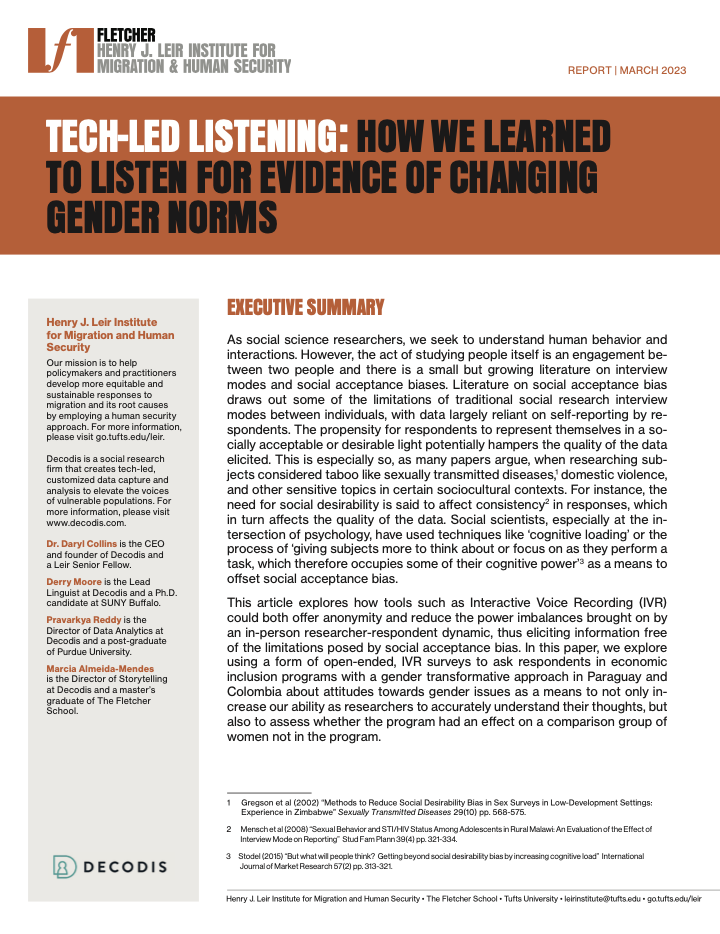Tech-Led Listening: How we Learned to Listen for Evidence of Changing Gender Norms
By Dr. Daryl Collins, Derry Moore, Pravarakya Reddy, and Marcia Almeida-Mendes
Leir Senior Fellow Dr. Daryl Collins is the CEO and founder of Decodis, a social research firm that creates tech-led, customized data capture and analysis to elevate the voices of vulnerable populations. This brief offers a case study of the innovative, tech-led methods pioneered by Dr. Collins which are currently used in the Digital Portfolios of the Poor program, co-led by the Leir Institute and Decodis.
As social science researchers, we seek to understand human behavior and interactions. However, the act of studying people itself is an engagement between two people and there is a small but growing literature on interview modes and social acceptance biases. Literature on social acceptance bias draws out some of the limitations of traditional social research interview modes between individuals, with data largely reliant on self-reporting by respondents. The propensity for respondents to represent themselves in a socially acceptable or desirable light potentially hampers the quality of the data elicited. This is especially so, as many papers argue, when researching subjects considered taboo like sexually transmitted diseases, domestic violence, and other sensitive topics in certain sociocultural contexts. For instance, the need for social desirability is said to affect consistency in responses, which in turn affects the quality of the data. Social scientists, especially at the intersection of psychology, have used techniques like ‘cognitive loading’ or the process of ‘giving subjects more to think about or focus on as they perform a task, which therefore occupies some of their cognitive power’ as a means to offset social acceptance bias.
This article explores how tools such as Interactive Voice Recording (IVR) could both offer anonymity and reduce the power imbalances brought on by an in-person researcher-respondent dynamic, thus eliciting information free of the limitations posed by social acceptance bias. In this paper, we explore using a form of open-ended, IVR surveys to ask respondents in economic inclusion programs with a gender transformative approach in Paraguay and Colombia about attitudes towards gender issues as a means to not only increase our ability as researchers to accurately understand their thoughts, but also to assess whether the program had an effect on a comparison group of women not in the program.

